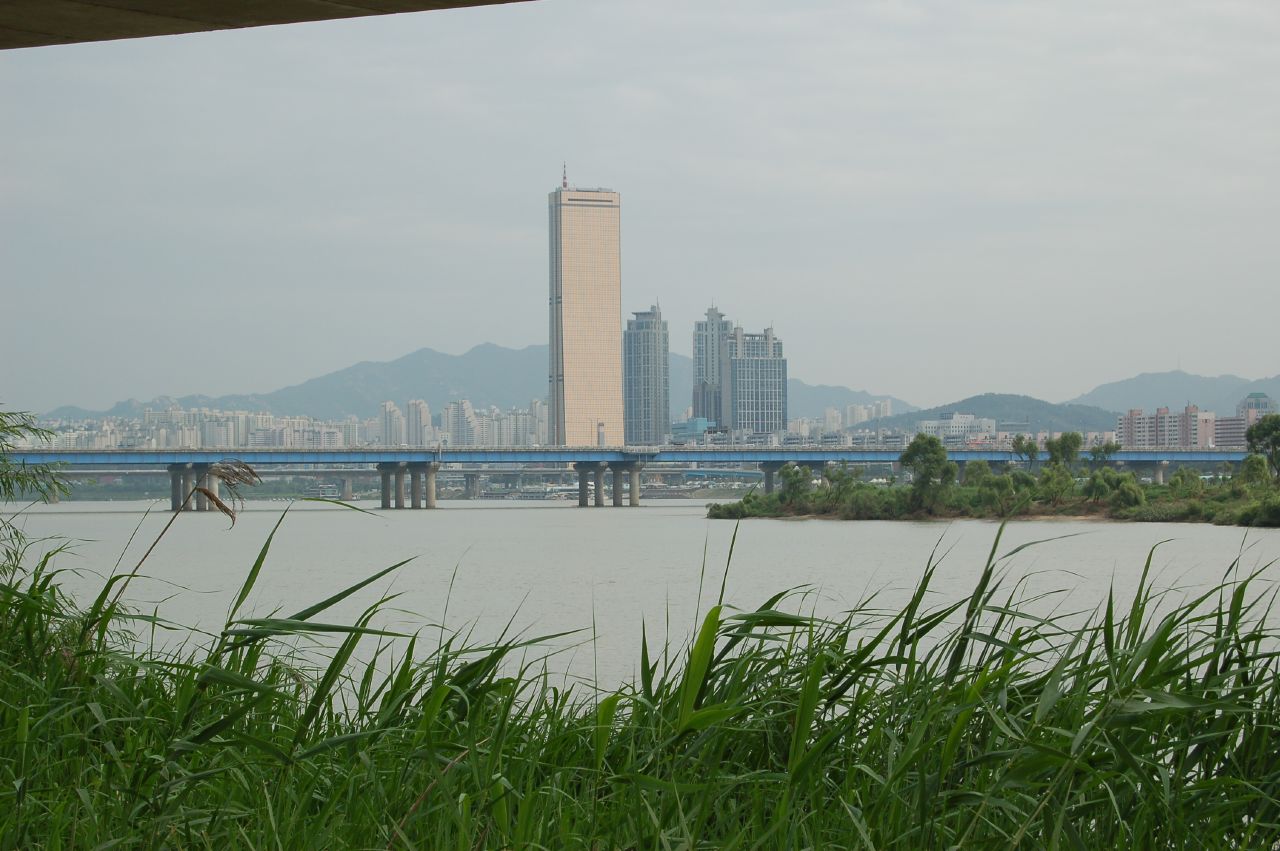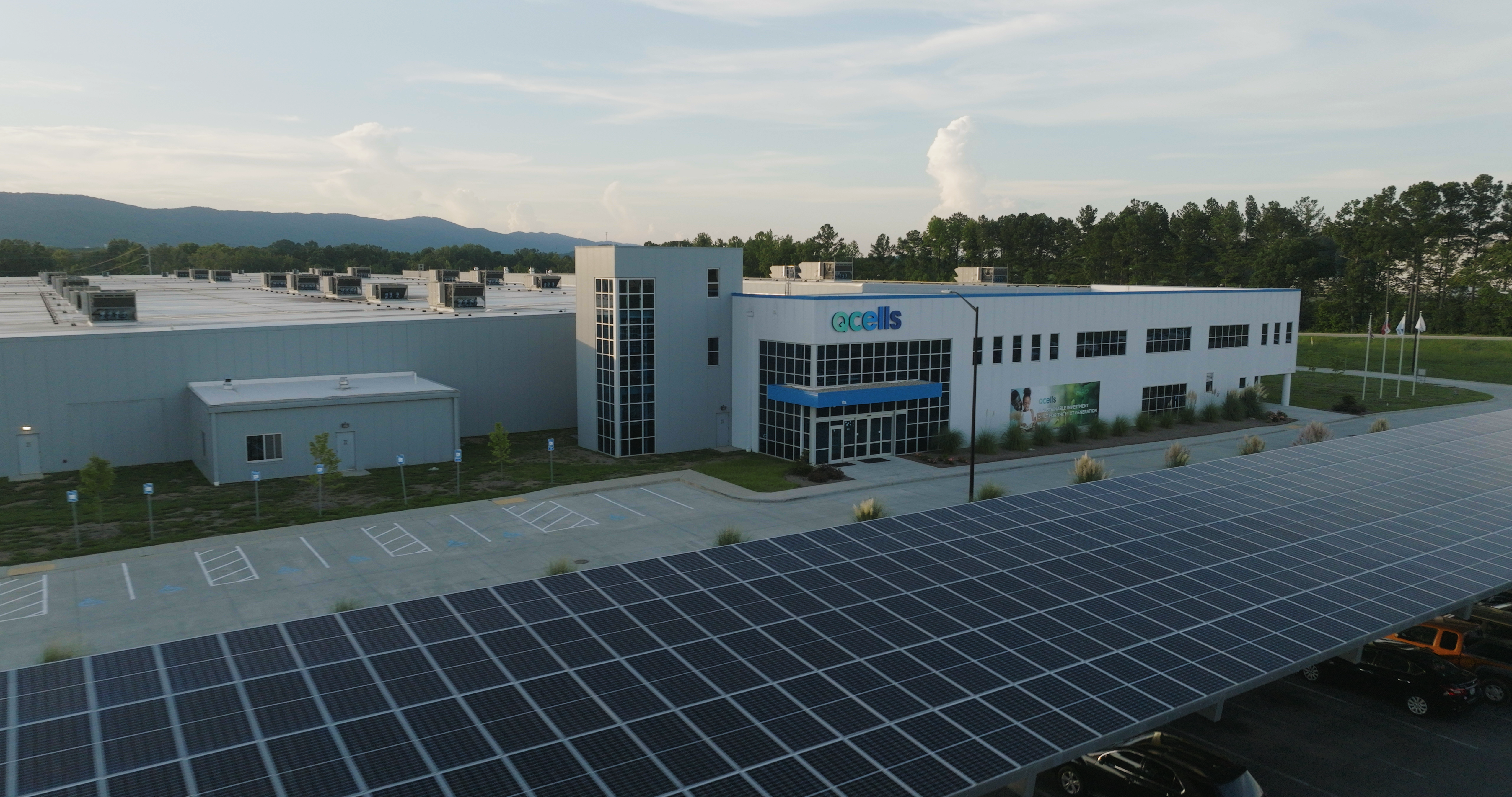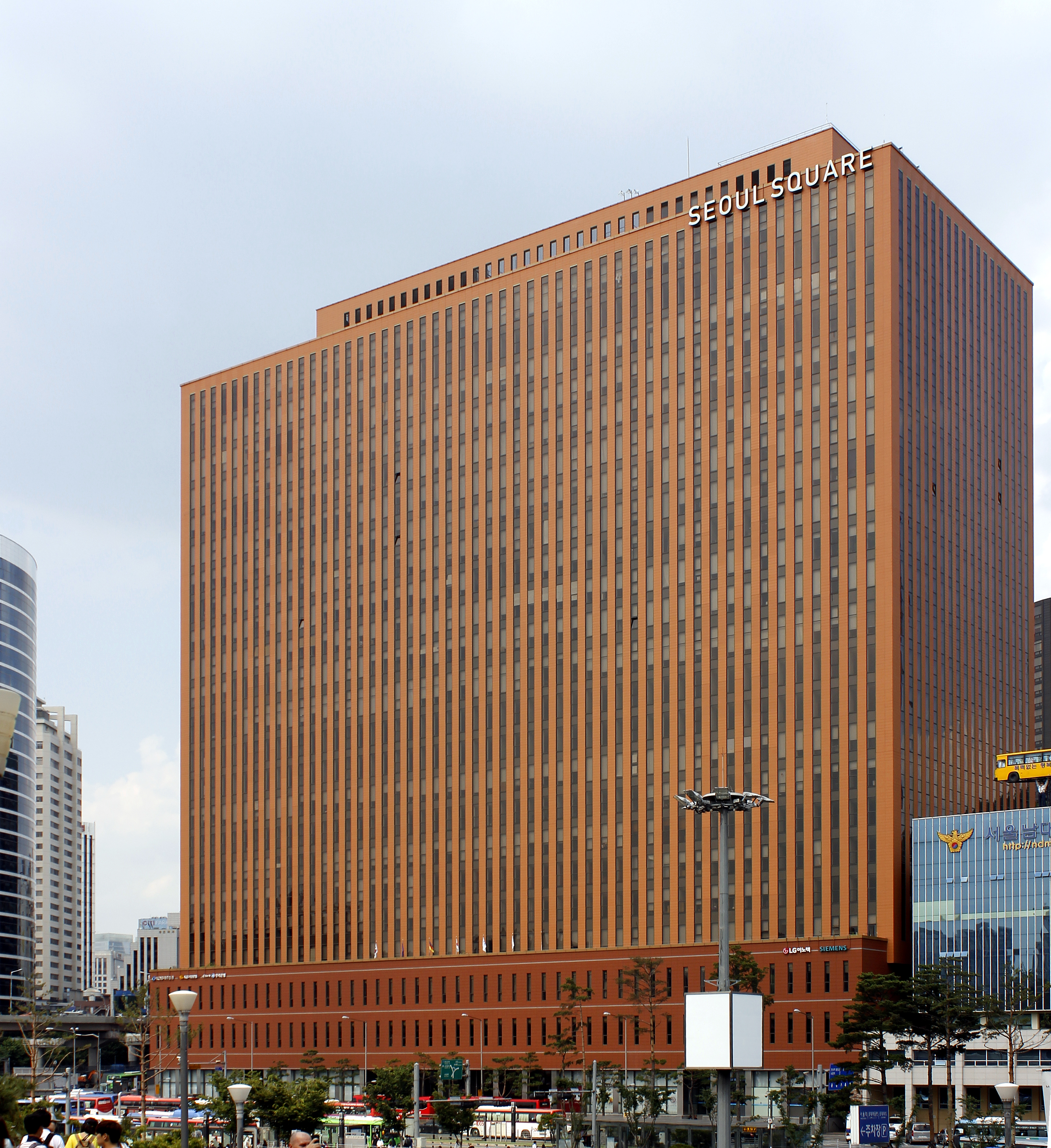|
Hanwha
Hanwha Group () is a large business conglomerate (chaebol) in South Korea. Founded in 1952 as Korea Explosives Co. (), the group has grown into a large multi-profile business conglomerate, with diversified holdings stretching from explosivestheir original businessto energy, materials, aerospace, mechatronics, finance, retail, and lifestyle services. In 1992, the company adopted its abbreviation as its new name: "Hanwha". History 1952–1999 Kim Chong-hee founded Korea Explosives Co. in October 1952. Prior to founding the company, Kim worked as a Explosives engineering, gunpowder engineer for the "Chosun Explosives Factory", a Japanese company. Later, he won the bid for the company and its Incheon factory and started the company there. From 1952 to 1963, the Korea Explosives Co. produced industrial explosives domestically, which was needed for construction and engineering of infrastructure. In the same time period, the Korea Explosives Co. started producing nitroglycerin, whi ... [...More Info...] [...Related Items...] OR: [Wikipedia] [Google] [Baidu] |
Hanwha Solutions
Hanwha Solutions Corporation () is a multinational energy services, petrochemical, and real estate development company headquartered in Seoul, South Korea. The company is part of the Hanwha Group, a large South Korean business conglomerate. Founded in 1965 as Hanwha Chemical, the company was rebranded as Hanwha Solutions in January 2020 when Hanwha Chemical merged with Hanwha Q Cells & Advanced Materials, which itself was formed out of a 2018 merger. The company added the Hanwha Galleria and Hanwha City Development real estate companies to its portfolio in April 2021. The Galleria division and the Advanced Materials division were spun off. The Electronic Materials business, which had remained part of the Advanced Materials division, was also transferred to a subsidiary of the company. Businesses The company operates its business through four divisions: * Chemical: Produces petrochemical products such as polyolefin (PO, includes polyethylene and polypropylene), polyvinyl chlo ... [...More Info...] [...Related Items...] OR: [Wikipedia] [Google] [Baidu] |
Hanwha Q Cells
Hanwha Qcells (commonly known as simply Qcells) is a manufacturer of photovoltaic cells. The company is headquartered in Seoul, South Korea, after being founded in 1999 in Bitterfeld-Wolfen, Germany, where the company still has its engineering offices. Qcells was purchased out of bankruptcy in August 2012 by the Hanwha Group, a South Korean business conglomerate. Qcells now operates as a subsidiary of Hanwha Solutions, the group's energy and petrochemical company. Qcells has manufacturing facilities in the United States, Malaysia, and South Korea. The company was the sixth-largest producer of solar cells in 2019, with shipments totaling 7.3 gigawatts. History On 23 July 2001, the company produced its first working polycrystalline solar cell on its new production line in Thalheim. Qcells would grow to become one of the world's largest solar cell manufacturers, employing over 2,000 people and encouraging other companies to open facilities in the surrounding area, which wo ... [...More Info...] [...Related Items...] OR: [Wikipedia] [Google] [Baidu] |
Chaebol
A chaebol ( , ; , ) is a large industrial South Korean conglomerate run and controlled by an individual or family. A chaebol often consists of multiple diversified affiliates, controlled by a person or group. Several dozen large South Korean family-controlled corporate groups fall under this definition. The term first appeared in English text in 1972. Chaebol have also played a significant role in South Korean politics. In 1988, a member of a chaebol family, Chung Mong-joon, president of Hyundai Heavy Industries, successfully ran for the National Assembly of South Korea. Other business leaders were also chosen to be members of the National Assembly through proportional representation. Hyundai Group, Hyundai has made efforts in the thawing of North Korea–South Korea relations, North Korean relations, despite some controversy. Many South Korean family-run chaebol have been criticised for low dividend payouts and other governance practices that favor controlling shareholders ... [...More Info...] [...Related Items...] OR: [Wikipedia] [Google] [Baidu] |
Kim Chong-hee
Kim Chong-hee (; 1922–1981) was the founder of Hanwha Group and a significant figure in the South Korean explosives industry. Korea Explosives Corporation Kim established the Korea Explosives Corporation, a predecessor of the Hanwha Hanwha Group () is a large business conglomerate (chaebol) in South Korea. Founded in 1952 as Korea Explosives Co. (), the group has grown into a large multi-profile business conglomerate, with diversified holdings stretching from explosivesthei ... Corporation, in 1952. He succeeded in producing dynamite domestically in 1957 and began its commercial production in 1958, contributing to South Korea's industrial growth by supporting the construction of national infrastructure, including bridges, tunnels and highways. Expansion Outside the explosives industry, Kim also contributed to the development of the domestic bearing industry by acquiring Shinhan Bearing Industrial in 1964 and advancing it, as well as supporting the growth of the domestic ... [...More Info...] [...Related Items...] OR: [Wikipedia] [Google] [Baidu] |
Binggrae
Binggrae Co., Ltd. (), is a South Korean multinational food and beverage corporation that manufactures ice cream, milk products, and snacks. Binggrae was founded in 1967 by Hong Soon-ji as Daeil Corporation (). The B in the Binggrae Logo is modeled after a heart. History 1960–1999 Hong Soon-ji () founded Daeil Corporation on 13 September 1967. Hong had founded the company with experience from making ice cream in Vietnam and selling it to the U.S. military in the 1960s. In 1971, Hong changed the name of the company to Daeil Dairy. In 1972, Daeil Dairy made a technological partnership with Foremost McKesson Inc., a company based in the United States. Due to handling issues, the Korea Explosives Group (later known as the Hanwha Group) acquired Daeil Dairy in 1973. Donong Plant 1 was also completed in Namyangju in 1973. In 1974, Binggrae's first mainstream products were released. (투게더), the first carton ice cream product made from raw milk in Korea was released in Ja ... [...More Info...] [...Related Items...] OR: [Wikipedia] [Google] [Baidu] |
Kim Seung-yeon
Kim Seung-youn (; born February 7, 1952) is a South Korean businessman. He is currently the chairman of Hanwha Hanwha Group () is a large business conglomerate (chaebol) in South Korea. Founded in 1952 as Korea Explosives Co. (), the group has grown into a large multi-profile business conglomerate, with diversified holdings stretching from explosivesthei ... Group. He was the former Head of the Bugil Education Foundation as well as that of Bugil Academy and Bugil Girls' Academy until 2014. References {{DEFAULTSORT:Kim, Seung-youn 1952 births Living people South Korean businesspeople ... [...More Info...] [...Related Items...] OR: [Wikipedia] [Google] [Baidu] |
Korea Zinc
Korea Zinc Company, Ltd. () is a non-ferrous metal smelter headquartered in Seoul, South Korea. It is one of the leading refined zinc-producing companies alongside Nyrstar, Hindustan Zinc, and Boliden. Korea Zinc produces 18 types of valuable metals and chemical products by processing various raw materials from zinc and lead concentrates to low-grade ore and scrap metal. Korea Zinc was founded by Choi Ki-ho and Chang Byung-hee in 1974. Since its establishment, Korea Zinc has been co-managed by the Choi and Chang families. Operations Korea Zinc has an annual production capacity of 650,000 tons of zinc and 420,000 tons of lead. In addition, while smelting the zinc and lead, Korea Zinc produces gold, silver, and sulfuric acid as byproducts. Korea Zinc's production base is the Onsan refinery located in Ulsan, South Korea. The company also manufactures and sells zinc ore through its Australian subsidiary, Sun Metals Corporation. For 2023, Korea Zinc is constructing a 500 billi ... [...More Info...] [...Related Items...] OR: [Wikipedia] [Google] [Baidu] |
Incheon
Incheon is a city located in northwestern South Korea, bordering Seoul and Gyeonggi Province to the east. Inhabited since the Neolithic, Incheon was home to just 4,700 people when it became an international port in 1883. As of February 2020, about 3 million people live in the city, making it South Korea's third-most-populous city after Seoul and Busan. The city's growth has been assured in modern times with the development of its port due to its natural advantages as a coastal city and its proximity to the South Korean capital. It is part of the Seoul Metropolitan Area, along with Seoul itself and Gyeonggi Province, forming the world's fourth-largest List of metropolitan areas by population, metropolitan area by population. Incheon has since led the economic development of South Korea by opening its port to the outside world, ushering in the modernization of South Korea as a center of industrialization. In 2003, the city was designated as South Korea's first free economic zon ... [...More Info...] [...Related Items...] OR: [Wikipedia] [Google] [Baidu] |



